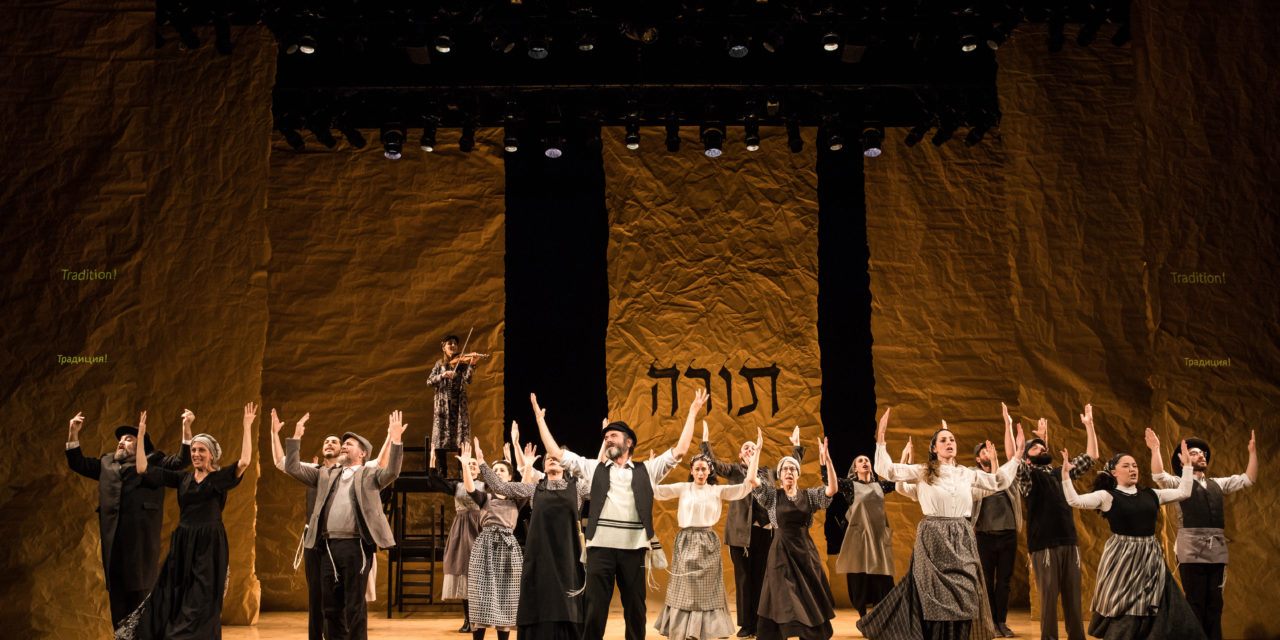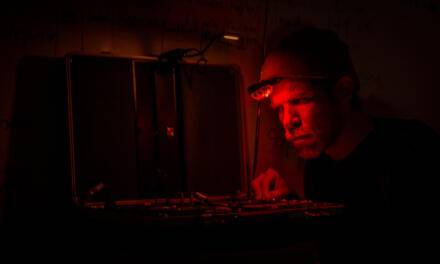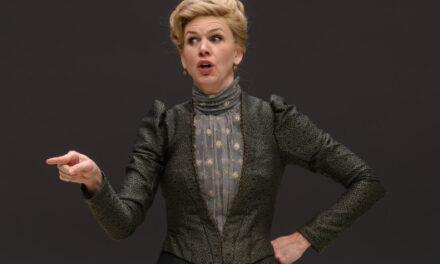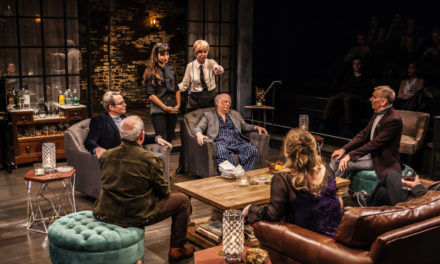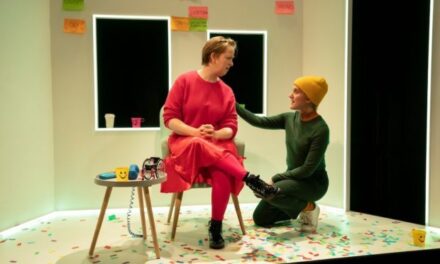In 2004, Gwen Stefani, lately of the band No Doubt, released a song called Rich Girl which sampled If I Were A Rich Man from Fiddler On The Roof. The chorus goes: “If I was a rich girl/Na, na, na, na, na, na, na, na, na, na, na, na/See, I’d have all the money in the world, if I was a wealthy girl.” I was a college freshman, and my best friend, a Jewish girl like me, was aghast at the song. Where did Gwen Stefani, a blonde princess from Orange County, get off sampling that song? I reminded my friend that If I Were A Rich Man was a Broadway showtune, not a psalm, but I couldn’t soften her reaction to the song. To me, the song was offensive not because of cultural appropriation but because Stefani was obviously pretty dang rich–this was during her Harajuku period and the budget for that music video was more than I’ll probably ever make in my life.
What my friend was really reacting to was the centrality, the near-sanctity of Fiddler for American Jews. And in a way, if you consider yourself “culturally Jewish,” as so many of us do, maybe the songs from Fiddler are as close as we get to sacred music.
And if you’re a cultural Jew in New York, which is basically redundant, treat yourself to Fidler afn Dakh, the Yiddish-language production of Fiddler On The Roof. The National Yiddish Theatre Folksbiene’s production just moved from the Museum of Jewish Heritage to Off-Broadway’s Stage 42, making it grander and more accessible to a broad audience. Yes, the premise is unrepentantly schmaltzy. Fiddler, a 1964 American musical by Jerry Bock and Sheldon Harnick, is of course based on Sholem Aleichem’s Yiddish-language stories about Tevye the dairyman. The current production relies on a 1965 translation by Shraga Friedman, of Israel’s Habimah National Theater, of the musical back into Yiddish.
Two things happen when Fiddler is in Yiddish. First, it surges with authenticity. This is ironic because, of course, the authenticity is artificial. Fiddler is no more a Yiddish show than Cabaret is German; both are Great American Musicals. But there’s an undeniable thrill about the premise, and we’re all giddy with satisfaction to hear Tevye speaking his native tongue. Some of the rhythms of the show also lend themselves to Yiddish performance. The original, non-Stefanied version of If I Were a Rich Man, which here becomes Ven Ikh Bin a Rothshild, has those eidl-deidl-deedls in the chorus, which dance trippingly on the Yiddish tongue.
Second, it’s funnier. Yiddish, as everyone knows, is man’s funniest language, both in the shapes of its sounds and its metaphoric flexibility. So at the top of the show, when Tevye is describing the central metaphor of the titular fiddler on the roof, the English script has it: “Sounds crazy, no?” That self-aware line gets comes to life with humor when it becomes: “Meshuggah, nein?”
And that’s it, really. English and Russian supertitles are helpfully provided, but if you know the show reasonably well, you can easily lose yourself in the terrific performances. The songs translate especially well, and it’s a real thrill to pick up a word here and there that you may recognize. One drawback is that sometimes the Russian characters, like the constable and the seductive Fyedke (Cameron Johnson) are speaking Russian. This is easier to pick out when the rest of the text is in English, but when your ears are in foreign language mode, this essential marker of difference can get lost.
Steven Skybell plays Tevye as a conflicted, yet tender and open-minded man. He’s also confusingly sexy for a Tevye. Also irresistible was Michael Einav who, the night I saw the show, played Pertshik, the radical socialist from Kiev (the part is usually performed by Drew Seigla). Maybe it’s my own weakness for both lefties and male teachers, but I didn’t for a minute question Hodl’s decision to follow him to a Siberian prison camp.
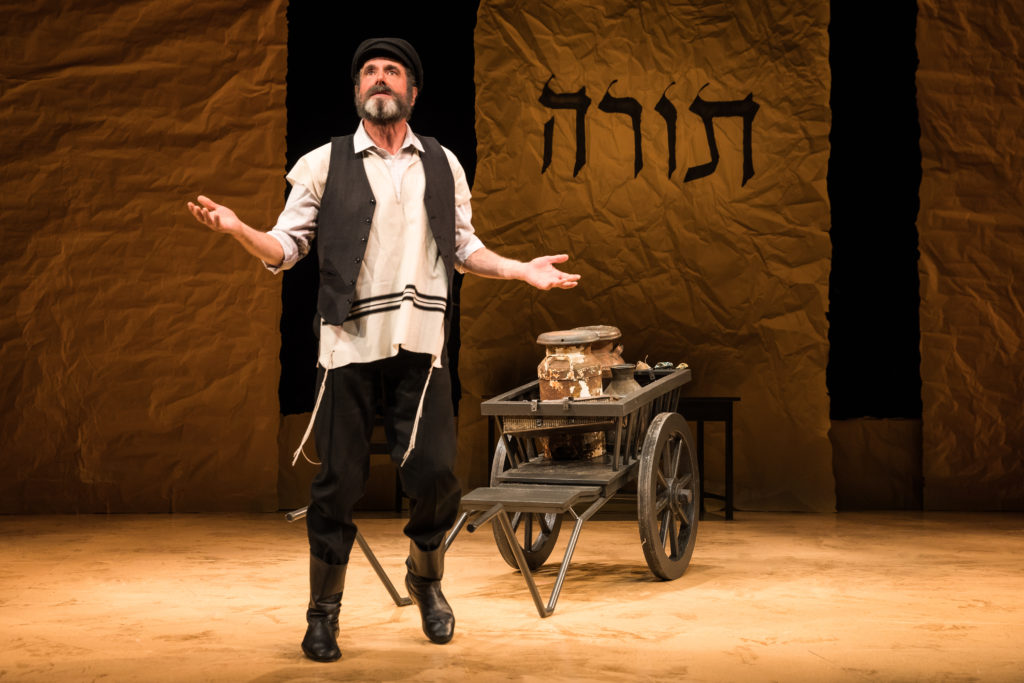
Steven Skybell as Tevye. Photo by Matthew Murphy.
Also extremely sexy were the Russians, not so much during the pogrom as when they do their Cossack dance in Lekhayim. Previously I had only seen high school and community theater productions of Fiddler. But in the capable hands and strong legs of professional New York dancers, Jerome Robbins’ original choreography, enhanced by choreographer/ethnographer Staś Kmieć is as titillating as it is impressive.
There’s a very funny moment during that number when the Jews, whose dance moves basically consist of various shimmies, are upstaged by Russians with their fancy footwork. White dude dancing is easy to mock, and when it’s outshined, it’s rarely by another variety of white dude dancing. When it happens, it’s both magnificent, and hilarious.
Speaking of hilarious, Jackie Hoffman found me a find as Yente, the long-winded matchmaker. Whereas the rest of the cast amazed me with their seemingly native-born command of Yiddish, Hoffman delivered her lines with an unapologetic Brooklyn accent. Her performance was balanced by Jennifer Babiak as Golde: solid and self-possessed but not immune to emotion. Babiak endows Golde with humor, at the same time allowing her space to work through her own reactions to the family conflicts. Tevye is a squeaky wheel, but Golde’s dignified silence expresses just as much.
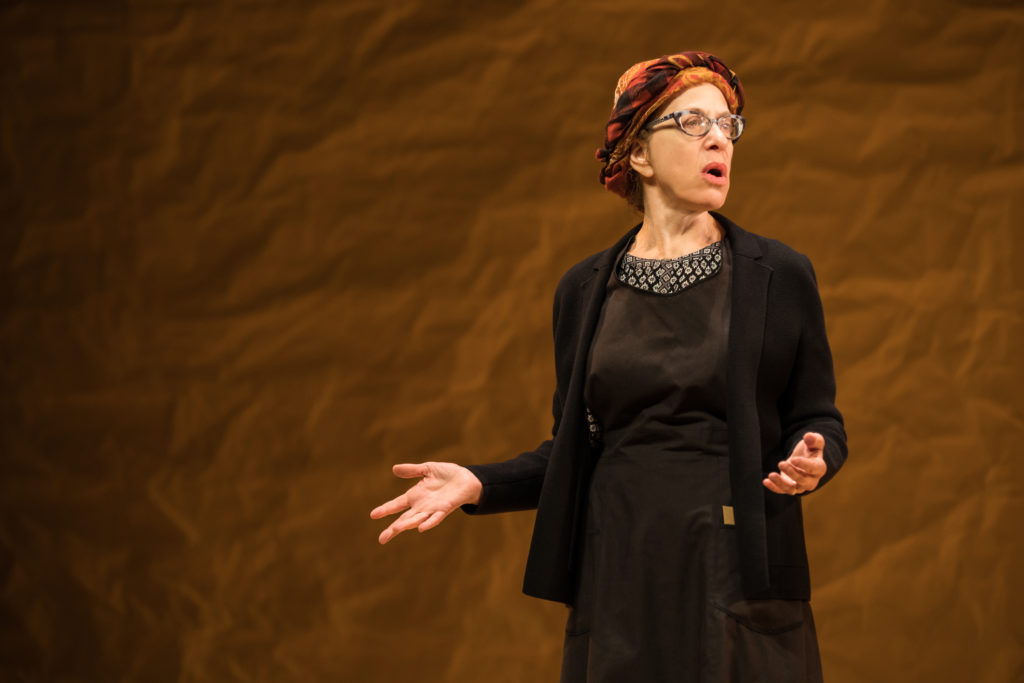
Jackie Hoffman as Yente. Photo by Matthew Murphy.
In the summer following my sophomore year of college, I did a study abroad program in St. Petersburg, Russia. I told that same best friend that I would have to be careful not to advertise my Jewishness too much. She was gobsmacked, saying “I thought everybody in Russia was Jewish, like in Fiddler.” A curious takeaway, but after all, the three-and-a-half-hour movie took up two VHS tapes; I wondered if my friend had only seen the first one. Because as much as Fiddler is a Great American Musical, it ends in a quiet, unconventionally anti-climactic way. Objects are packed, goodbyes are said, and people scatter. Anatevke, a typical shtetl, is reduced to a lieu de mémoire, wiped off the map because its existence was emotional, not physical.
And at last, the use of Yiddish becomes truly meaningful. Imperial languages like Russian and English grow and change, are challenged and adapt, but they’ll never have to fight for their lives. We’ll never have to build libraries or museums or start anachronistic theater companies for their preservation. In the twenty-first century, in New York or anywhere else, speaking Yiddish is a labor of love, an act of resistance. A Yiddish-speaker adds an unnecessary burden to the act of self-expression, ok I’ll say it, like a fiddler on the roof.
This post was written by the author in their personal capacity.The opinions expressed in this article are the author’s own and do not reflect the view of The Theatre Times, their staff or collaborators.
This post was written by Abigail Weil.
The views expressed here belong to the author and do not necessarily reflect our views and opinions.

